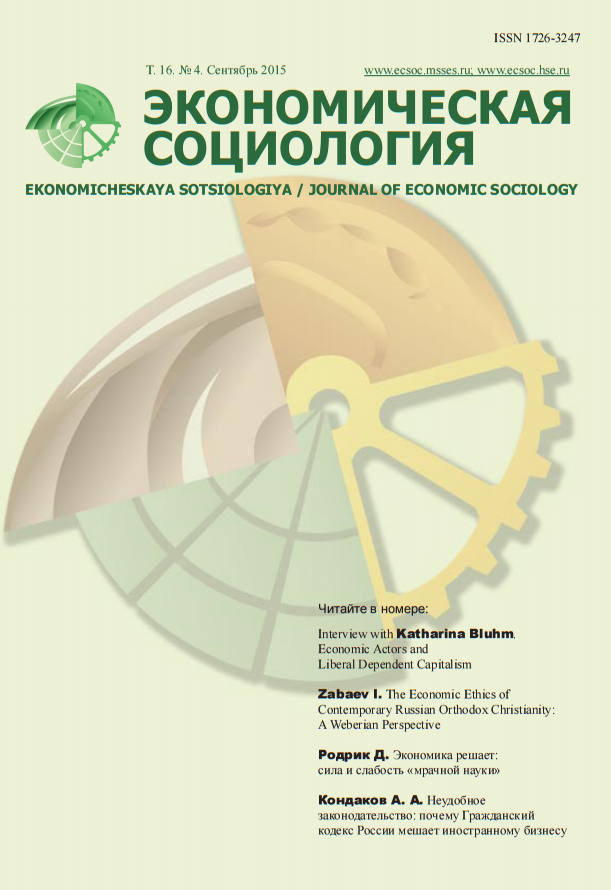Economics Rules: The Rights and Wrongs of the Dismal Science (an excerpt)
Abstract
Economics Rules: The Rights and Wrongs of the Dismal Science is based on a course of lectures on Political Economy (co-authored with Roberto Mangabeira) at Harvard University. This course helped Rodrik to start thinking about economic theory’s weaknesses and strengths in order to articulate the opportunities and benefits of the economic method. This book aims to bridge the gap between economists and non-economists. Rodrik argues that it helps to convince scholars from other social sciences that it is just a stereotype that economists believe in universal economic laws. Actually, Rodirik states, there are a lot of various conceptions providing economists with multiple explanations of the social world and implications which public policy might rely on. Demonstrating economic theory’s potential for non-economists is a central message of this book.
The Journal of Economic Sociology is publishing the first chapter “Models at Work” with permission from the Gaidar Institute Publishing House. In this chapter, the author explains what an economic model is, what kind of premises it implies, and for what it is applied. Rodrik draws readers’ attention to the fact that there are a number of economic models in economic theory, generated from various theoretical perspectives. The presence of a number of models is a main strength of economic theory.













